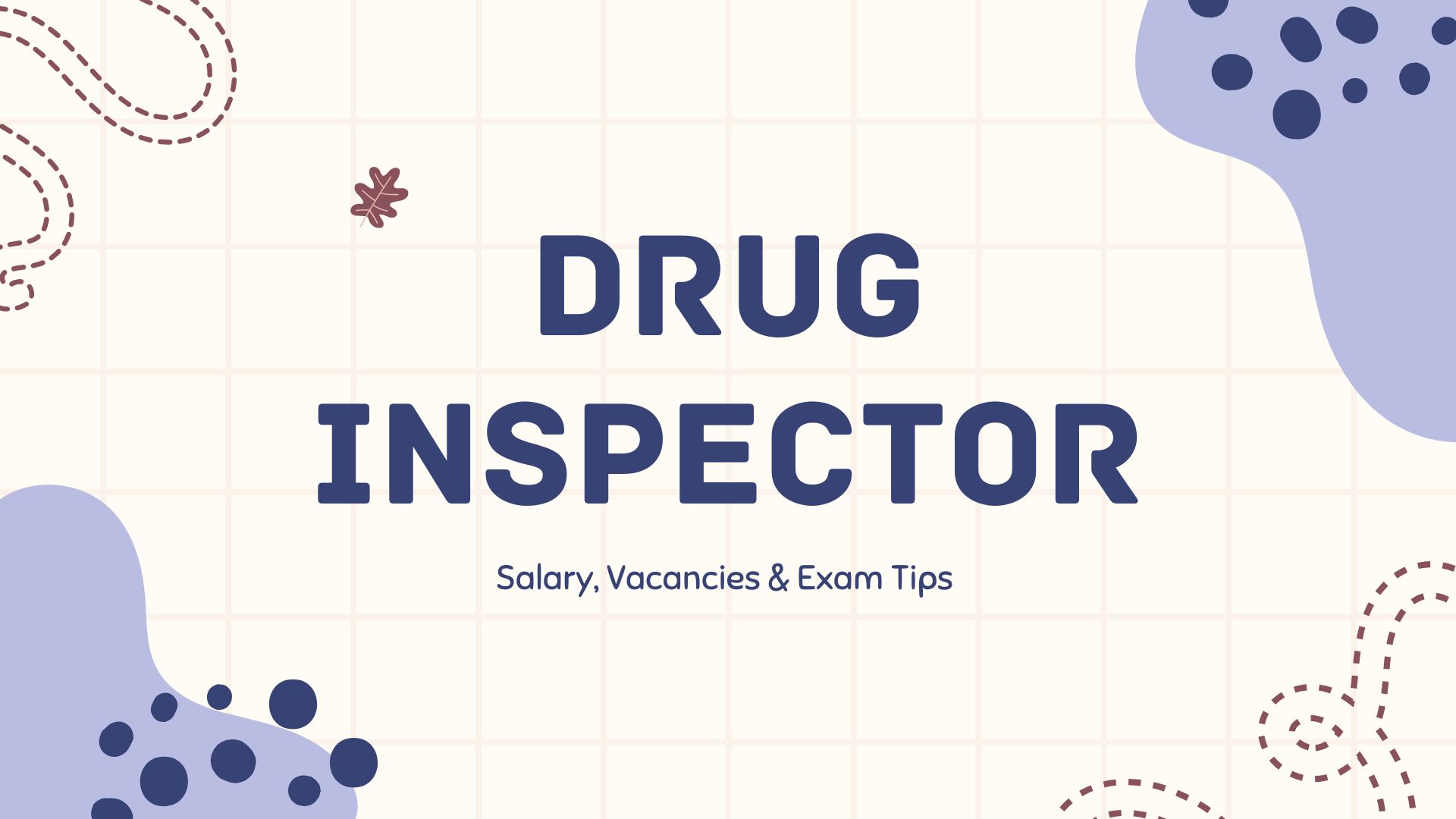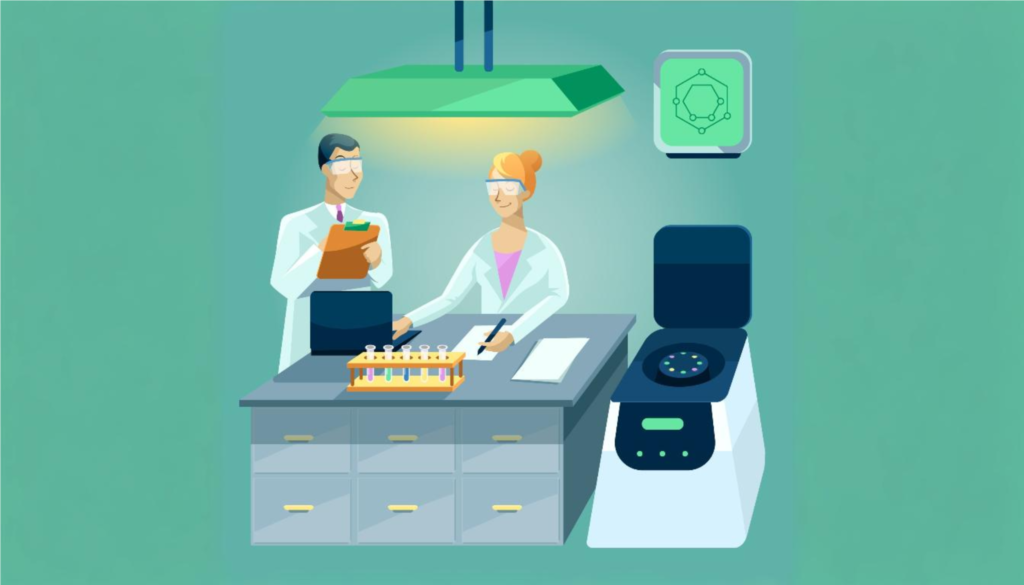India’s Drug Inspector exam is a prestigious opportunity for individuals interested in a career in the pharmaceutical regulatory sector. With the growing demand for qualified professionals in drug control, the Drug Inspector Exam the role of a Drug Inspector holds significant responsibility in ensuring the safety and quality of medicines. Preparing for this exam requires dedication, strategic planning, and a thorough understanding of the exam pattern and syllabus. This guide will walk you through the preparation steps to help you confidently navigate the Drug Inspector exam process in India.
Understanding the Role of a Drug Inspector
A Drug Inspector plays a crucial role in regulating the manufacture, sale, and distribution of drugs. They ensure that medicines comply with the standards of quality, safety, and efficacy. Their responsibilities include inspecting manufacturing plants, collecting samples for analysis, and ensuring compliance with the Drugs and Cosmetics Act of 1940.
Salary Structure of Drug Inspectors in India (Detailed)
The salary structure for a Drug Inspector is attractive, and the post comes under the Pay Band-2 category of the 7th Pay Commission. Apart from the basic salary, Drug Inspectors receive several allowances, making the total salary quite competitive.
1. Basic Pay:
- Starting Basic Pay: ₹45,000 – ₹55,000 per month, depending on the state and grade level.
2. Allowances:
- Dearness Allowance (DA):
The DA is calculated as a percentage of basic pay to adjust for inflation. It is revised twice a year, typically amounting to 38-42% of the basic pay. - House Rent Allowance (HRA):
HRA varies depending on the city of posting. It can range from:- 30% of basic pay for Class X cities (metros like Delhi, Mumbai, etc.)
- 20% for Class Y cities
- 10% for Class Z cities (small towns)
- Travel Allowance (TA):
Drug Inspectors often have to travel for inspections, and their travel expenses are covered by the government. This includes Daily Allowance for lodging and meals when traveling for official duties. - Medical Benefits:
Government employees, including Drug Inspectors, are entitled to Comprehensive Health Insurance for themselves and their dependents. Medical treatment in government and private hospitals (empaneled) is covered under schemes like CGHS (Central Government Health Scheme). - Pension and Gratuity:
As a government employee, Drug Inspectors are eligible for pension benefits upon retirement. They also receive gratuity based on years of service. - Leave and Holidays:
Drug Inspectors enjoy a generous number of leaves, including:- Casual Leave (CL): Up to 8-12 days per year
- Earned Leave (EL): 30 days per year
- Medical Leave: As per the government’s medical leave policy
- Maternity/Paternity Leave: Provided as per government rules
3. Total Gross Salary:
When all allowances (DA, HRA, TA) are factored in, the gross salary for a Drug Inspector typically ranges between ₹60,000 to ₹80,000 per month. For those in metropolitan areas or with additional experience, the gross salary can even exceed ₹1,00,000 per month.
Additional Perks and Benefits for Drug Inspectors
Apart from the salary and basic allowances, Drug Inspectors enjoy several additional perks:
1. Government Housing:
In some states or union territories, Drug Inspectors are eligible for government quarters or housing allowances in lieu of quarters. In metropolitan cities, this can be a major financial benefit as housing costs are typically high.
2. Job Security:
Government jobs in India are known for their high job security. Drug Inspector roles are no exception. Once selected, Drug Inspectors enjoy secure employment, provided they adhere to government norms.
3. Official Vehicle and Conveyance:
For carrying out official inspections, Drug Inspectors may receive access to official vehicles or be reimbursed for using personal vehicles during official duties.
4. Post-Retirement Benefits:
In addition to pensions, government employees like Drug Inspectors are eligible for post-retirement healthcare schemes, gratuity payments, and other benefits designed to support a comfortable retirement.
5. Scope for Promotions and Career Growth:
Drug Inspectors have a well-defined career path with multiple promotion opportunities. Over time, they can rise to positions such as Senior Drug Inspector, Assistant Drugs Controller, and eventually, Drugs Controller at the state or central level.
Vacancy Trends for Drug Inspector Exams in India (Updated)
Drug Inspector vacancies are released periodically by state public service commissions (e.g., UPSC, SSC) or state drug control departments. The number of vacancies varies each year, largely based on state-specific needs, health infrastructure, and regulatory expansion. Here’s an updated average estimate of vacancies in North Indian states and other regions:
North India
- Uttar Pradesh: 15-30 vacancies per year
- Haryana: 5-10 vacancies per year
- Punjab: 5-10 vacancies per year
- Delhi (NCT): 5-15 vacancies per year
- Rajasthan: 8-12 vacancies per year
- Uttarakhand: 5-10 vacancies per year
- Himachal Pradesh: 3-7 vacancies per year
- Jammu & Kashmir: 3-6 vacancies per year
Other Key States
- Maharashtra: 20-40 vacancies per year
- Tamil Nadu: 10-25 vacancies per year
- Karnataka: 10-20 vacancies per year
- Andhra Pradesh: 5-15 vacancies per year
- Gujarat: 10-20 vacancies per year
- West Bengal: 5-15 vacancies per year
- Kerala: 5-10 vacancies per year
Keep in mind that some states with larger pharmaceutical industries, such as Maharashtra and Gujarat, tend to announce more frequent and higher numbers of vacancies. States with a growing healthcare sector may also see a rise in recruitment depending on policy changes.
Drug Inspector Exam Pattern
The exam typically consists of two stages:
- Written Examination:
- This includes two papers:
- Paper 1: Pharmacy or Pharmaceutical Science-based questions (core subjects like Pharmacology, Pharmaceutical Chemistry, Pharmaceutics, etc.)
- Paper 2: General Knowledge and Current Affairs
- This includes two papers:
- Interview: Candidates who pass the written examination are shortlisted for the interview stage.
Eligibility Criteria
Before starting your preparation, ensure you meet the following eligibility requirements:
- Educational Qualification: A degree in Pharmacy, Pharmaceutical Sciences, or Medicine with a specialization in Clinical Pharmacology or Microbiology from a recognized university.
- Experience: Certain states may require practical experience in the manufacture or testing of drugs.
- Age Limit: Typically between 21-35 years, although this may vary slightly by state or regulatory body.
Effective Study Plan for the Drug Inspector Exam
1. Understand the Syllabus Thoroughly
The Drug Inspector exam syllabus can be vast. Start by breaking it down into manageable sections. Focus on the following topics:
- Pharmaceutics
- Pharmacology
- Pharmaceutical Chemistry
- Pharmaceutical Jurisprudence
- Microbiology
- Clinical Pharmacology
For General Knowledge, stay updated with current affairs, especially in the health sector, pharmaceutical policies, and global health initiatives.
2. Create a Study Schedule
An organized study plan can help you cover the syllabus efficiently Drug Inspector Exam. Here’s a suggested schedule:
- Daily Study Time: Dedicate 4-6 hours each day to study, divided between technical subjects and general knowledge.
- Weekly Revision: Reserve one day each week for revision. Revisit notes and attempt previous year’s question papers to gauge your progress.
- Mock Tests: Allocate at least one mock test each week to build exam readiness. Mock tests will help you familiarize yourself with the exam pattern, improve time management, and identify areas for improvement.
3. Focus on Core Subjects
Core pharmaceutical subjects account for Drug Inspector Exam the majority of the written exam. Focus on:
- Pharmaceutical Chemistry: Study chemical analysis, synthesis of medicinal compounds, and the role of chemistry in drug formulation.
- Pharmacology: Focus on drug action, mechanisms, side effects, and therapeutic uses.
- Pharmaceutics: Study formulation development, drug delivery systems, and manufacturing practices.
- Pharmaceutical Jurisprudence: Understand the legal framework surrounding drug regulations in India.
Tip: Break down complex concepts using flowcharts and diagrams. Visual aids are helpful in retaining large volumes of information.
4. Stay Updated with Current Affairs
Read newspapers and reliable health magazines daily to stay informed about current pharmaceutical policies, new drug approvals, and global health trends. This will enhance your general knowledge, which is vital for Paper 2 and the interview stage.
Top Resources to Ace the Drug Inspector Exam
To give your preparation Drug Inspector Exam an edge, make use of authoritative resources:
- Textbooks:
- Rang & Dale’s Pharmacology for detailed pharmacology concepts
- Remington: The Science and Practice of Pharmacy for Pharmaceutics
- KD Tripathi’s Essentials of Medical Pharmacology for a comprehensive understanding of drug action.
- Online Courses: Platforms like Coursera and edX offer specialized pharmaceutical courses that can deepen your understanding.
- Previous Year Question Papers: Available on trusted educational portals and government websites, these are invaluable in understanding the exam pattern and frequently asked questions.Authoritative Websites:
How to Prepare for the Interview Stage
If you pass the written exam, the interview will assess your practical knowledge of drug laws, and pharmaceutical practices, and your ability to handle real-life regulatory challenges.
- Brush up on the Drugs and Cosmetics Act, 1940.
- Prepare to answer situational questions related to drug inspections, counterfeit drugs, and dealing with legal violations.
- Enhance Communication Skills: Be clear, concise, and confident when explaining technical concepts.
Final Thoughts on Drug Inspector Preparation
A career as a Drug Inspector offers job stability, financial security, and the satisfaction of ensuring public health and safety. To prepare for the exam, it’s crucial to stay updated with the latest syllabus, and Drug Inspector Exam develop a clear study plan, and focus on both technical subjects and current affairs. Given the attractive salary and perks, the effort invested in preparation can lead to a highly rewarding career in the pharmaceutical regulatory sector.
For further updates on Drug Inspector vacancies and exam dates, candidates should regularly check authoritative websites like the UPSC or State Public Service Commission portals for official notifications.
More Articles – Link



